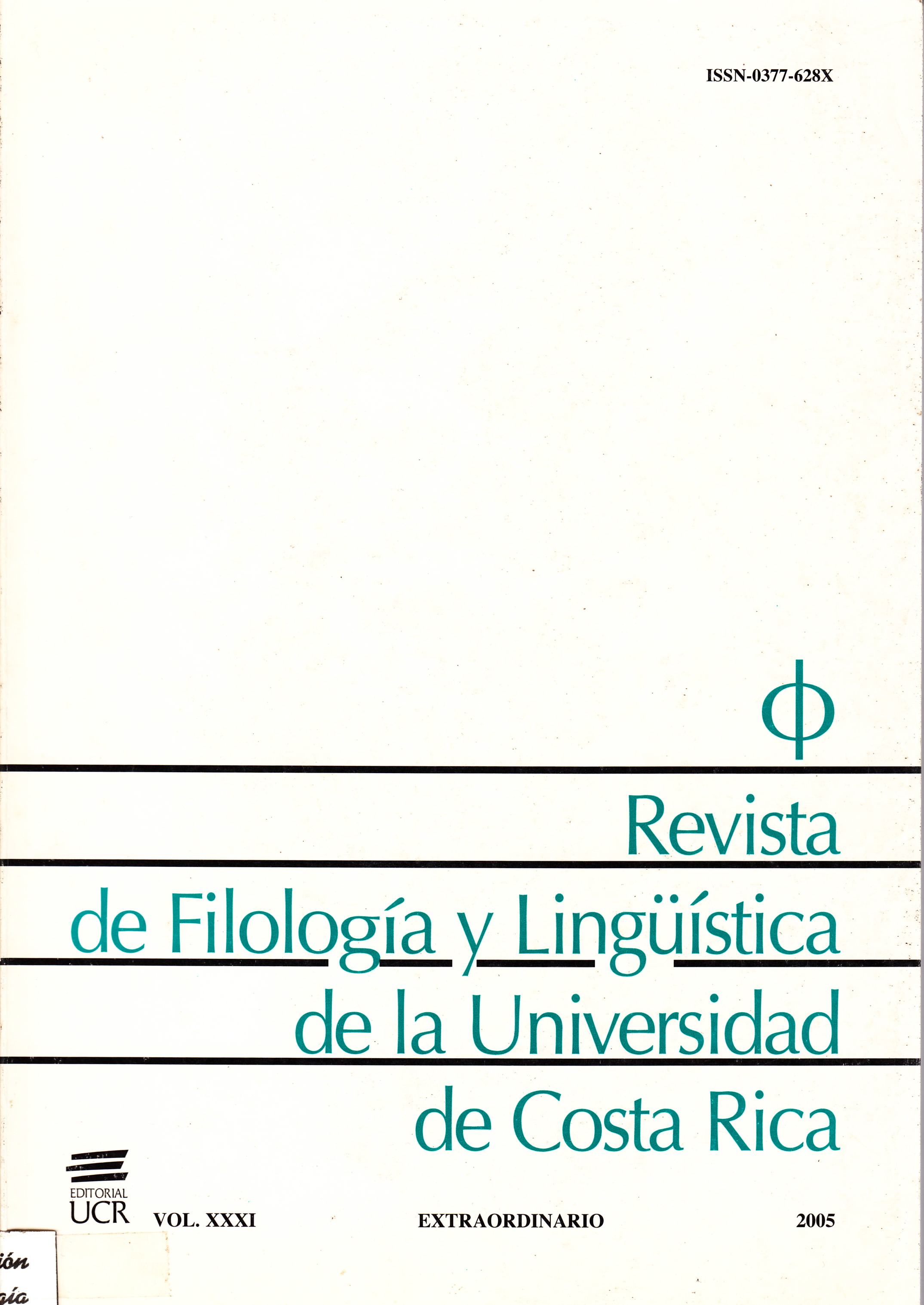Abstract
In this work “La Calle, Jinete y yo” (1975) by Hernán Elizondo Arce (1921) is analyzed from an ideologic point of view, to determine the way the writer states and overthrows the hierarchies related to religious, familiar, and politic codes. Firstly, it starts with a characterization of the contexts in which the novel is created and secondly, the function of the humor and irony as rethorical resources that unstable different power instances is determined. These mechanisms let the authoritarianism, violence and the corruption. These are characteristic features of the icon from a conventional and mediocre society, built by the novel in a way that constitudes an antecedent meaning of the narrative from the next decades, whose emphasis is based in the disenchant subject.
References
Acevedo, Ramón Luis. 1992. “Rumbos de la narrativa centroamericana actual”. Revista Káñina. XVI (2): 39-51.
Arias, Arturo. 1990. “Nueva narrativa centroamericana”. Centroamericana. Núm. 1: pp. 9- 23.
Ballart, Pere. 1994. Eironeia. La figuración irónica en el discurso literario moderno. Barcelona: Quaderns Crema.
Elizondo Arce, Hernán. 1971. La ciudad y la sombra. San José: Lehmann.
(1981). La calle, jinete y yo. San José: Editorial Costa Rica.
(2002). Anécdotas y relatos. San José: Editorial Guayacán.
García Márquez, Gabriel. 1978. El coronel no tiene quien le escriba. México: Biblioteca Era.
Noguerol, Francisca. 1995. La trampa en la sonrisa. Sátira en la narrativa de Augusto Monterroso. Sevilla: Universidad de Sevilla.
Ricoeur, Paul. 2001. Del texto a la acción. México: Fondo de Cultura Económica.
Sáinz de Medrano, Luis. 1989. Historia de la literatura latinoamericana (Desde el modernismo). Madrid: Taurus.
Titler, Jonathan. 1990. Ironía narrativa en la novela hispanoamericana contemporánea. Traducción Carmen Bravo. Colombia: Banco de la República.
Zavala, Lauro. 1993. Humor, ironía y lectura. México: Universidad Autónoma Metropolitana.

